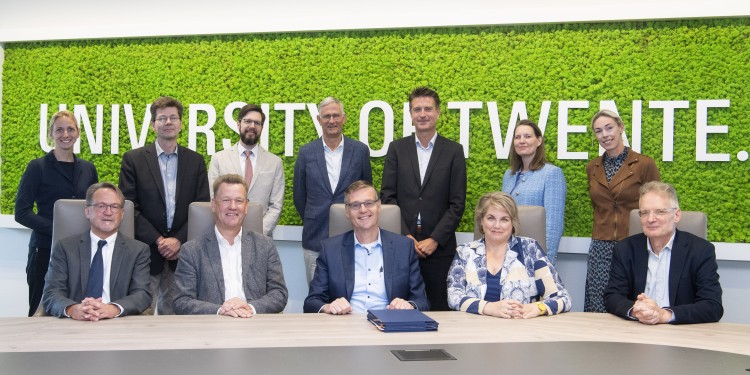
Universities of Münster and Twente sign joint doctoral agreement
Less bureaucracy, stronger focus on scientific cooperation: This week, a delegation from the University of Münster travelled to Enschede to sign a joint doctoral agreement with the University of Twente. From now on, administrative hurdles have been removed for the Faculties of Physics as well as Chemistry and Pharmacy and the procedure for joint doctoral training has been simplified. This means that legal and organisational framework conditions no longer have to be renegotiated again and again for all doctoral students, as was previously the case. "In addition to the administrative advantages, the joint training of excellent young researchers enables us to strengthen scientific cooperation between our universities," emphasises Rector Prof. Dr. Johannes Wessels.
In this agreement, the universities make overarching joint regulations on binational doctoral procedures, for example with regard to doctoral supervision, the conduct of the disputations and the issuing of the degree certificates, which contain the names and logos of both universities. As before, the universities must conclude so-called "Individual Agreements" for each doctoral candidate in addition to the doctoral agreement. Here, concrete contents are determined, for example, in which language the thesis will be written, who will supervise the thesis or when and for how long the doctoral students will complete their research stays at both partner institutions.
The doctoral agreement was initiated by the Collaborative Research Centre 1459 "Intelligent Matter: From Responsive to Adaptive Nanosystems". In this research network, scientists from both universities work together and train a large number of doctoral students.
